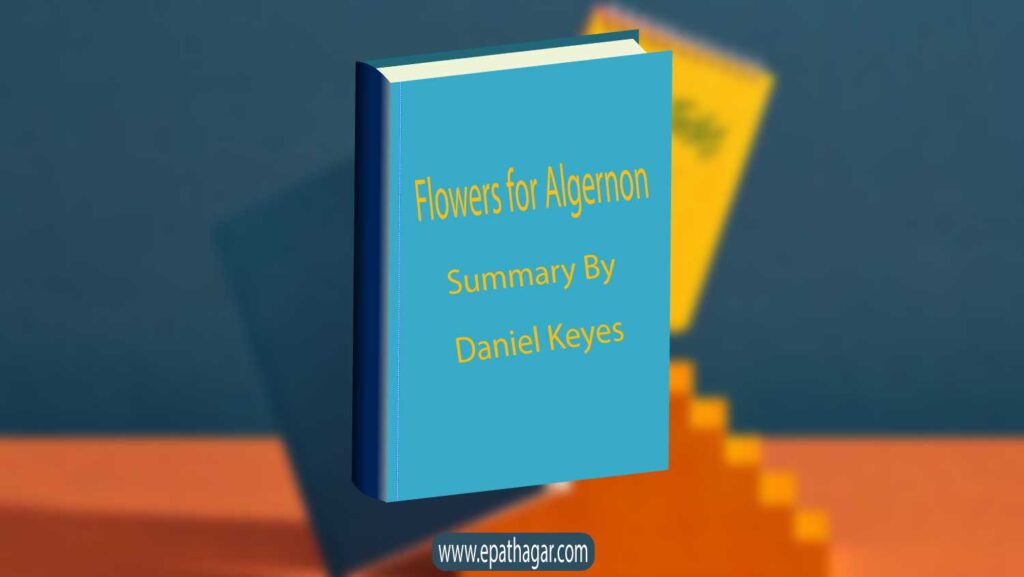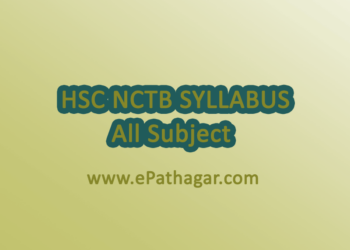Flowers for Algernon by Daniel Keyes is a poignant exploration of the human condition, intelligence, and empathy. The narrative unfolds through a series of progress reports written by Charlie Gordon, a mentally disabled man who undergoes a groundbreaking surgical procedure to enhance his intelligence. As Charlie’s intellect rapidly expands, he grapples with newfound complexities, societal expectations, and the painful awareness of his past limitations. Through his experiences, the novel delves into themes of loneliness, identity, and the ethical implications of scientific advancement. Algernon, the laboratory mouse who underwent the same procedure, serves as a poignant symbol of Charlie’s journey, highlighting the fragility and impermanence of intellectual superiority. Ultimately, Flowers for Algernon Review is a stirring reminder of the value of compassion and the profound impact of human connections in the face of life’s challenges and uncertainties.
Flowers for Algernon book review
Daniel Keyes’ Flowers for Algernon is a deeply affecting novel that explores the complexities of human intelligence, the pursuit of knowledge, and the inherent loneliness that accompanies profound understanding. Through the poignant narrative of Charlie Gordon, a mentally disabled man who undergoes a groundbreaking experiment to enhance his intelligence, Keyes navigates themes of identity, empathy, and the ethical implications of scientific advancement. Published in 1966, the novel remains a timeless exploration of the human condition, resonating with readers across generations.
At the heart of Flowers for Algernon Review is the character of Charlie Gordon, whose journey serves as the focal point of the narrative. Initially portrayed as intellectually disabled, Charlie works as a janitor at a bakery, struggling to navigate the complexities of everyday life. His earnest desire to learn and improve himself leads him to volunteer for an experimental surgical procedure designed to increase intelligence. Through a series of progress reports written by Charlie himself, the reader gains intimate access to his thoughts, emotions, and evolving understanding of the world around him.
The structure of the novel, presented as a series of diary entries or progress reports, allows Keyes to immerse readers in Charlie’s internal world. The use of first-person narration creates a sense of immediacy, inviting readers to witness Charlie’s transformation firsthand. Initially, Charlie’s writing is characterized by grammatical errors, spelling mistakes, and a childlike innocence, reflecting his limited cognitive abilities. However, as his intelligence grows, so too does the complexity and sophistication of his prose, offering insight into his expanding intellect and emotional depth.
Central to Charlie’s journey is his relationship with Algernon, a laboratory mouse who underwent the same experimental procedure. Initially outperformed by Algernon in intelligence tests, Charlie becomes determined to surpass the mouse and prove his worth. Flowers for Algernon As Charlie’s intelligence surpasses that of even the researchers who conducted the experiment, he begins to empathize with Algernon’s plight, recognizing the shared humanity and vulnerability they both possess. Algernon serves as a poignant symbol of Charlie’s own journey, highlighting the fragility and impermanence of intellectual superiority.
Throughout the novel, Keyes skillfully explores the complexities of intelligence and its impact on individual identity. As Charlie’s intellect grows, he grapples with newfound awareness and understanding, confronting painful memories and unresolved traumas from his past. His relationships with friends, family, and colleagues are strained as he struggles to reconcile his newfound intelligence with the person he once was. Keyes raises thought-provoking questions about the nature of intelligence and its relationship to happiness, fulfillment, and human connection.
One of the most compelling aspects of Flowers for Algernon PDF is its exploration of empathy and compassion. As Charlie’s intelligence increases, so too does his ability to understand and empathize with others. He becomes acutely aware of the loneliness and isolation that define his existence, longing for genuine human connection and acceptance. Through his interactions with his coworkers, particularly Alice Kinnian, his former teacher and love interest, Charlie experiences moments of profound intimacy and emotional vulnerability. However, he also grapples with feelings of alienation and estrangement as he struggles to bridge the gap between his intellectual and emotional selves.
The novel also delves into the ethical implications of scientific experimentation and the pursuit of knowledge at any cost. Charlie’s transformation raises complex moral questions about the limits of human intervention and the potential consequences of playing god. As his intelligence grows, Charlie becomes increasingly disillusioned with the researchers who conducted the experiment, questioning their motives and the ethicality of their actions. His journey serves as a cautionary tale about the dangers of unchecked ambition and the importance of humility and empathy in scientific discovery.
Flowers for Algernon is a masterful exploration of the human condition, offering profound insights into the nature of intelligence, empathy, and identity. Keyes’ prose is both eloquent and emotionally resonant, drawing readers into Charlie’s world and inviting them to grapple with the same existential questions that define his journey. Through the character of Charlie Gordon, Keyes reminds us of the inherent dignity and worth of every individual, regardless of their intellectual capacity or cognitive ability. At its core, Flowers for Algernon is a testament to the power of empathy, compassion, and human connection in the face of life’s most profound challenges.
What are the weaknesses of this book?
Flowers for Algernon Review is widely acclaimed for its emotional depth and thought-provoking themes, but it is not without its weaknesses. One notable aspect is its portrayal of disability and intellectual impairment, which some critics argue may perpetuate stereotypes and stigmatize individuals with cognitive disabilities. Despite the novel’s intention to challenge preconceptions about intelligence and worth, the depiction of Charlie’s initial state as mentally disabled can be seen as reductive and one-dimensional, reinforcing outdated notions of disability as a tragic affliction to be overcome through medical intervention. Some readers have criticized the novel’s pacing and structure, particularly in the latter half of the book. As Charlie’s intelligence rapidly increases, the narrative becomes more disjointed and fragmented, mirroring his own internal turmoil and confusion. While this stylistic choice effectively conveys Charlie’s emotional state, it may also detract from the coherence and flow of the story, leaving some readers feeling disconnected from the protagonist’s journey.
The novel’s treatment of its female characters, particularly Alice Kinnian, has been subject to scrutiny. Despite her pivotal role in Charlie’s development and emotional growth, Alice is often relegated to the sidelines, serving primarily as a romantic interest rather than a fully realized character in her own right. This lack of depth and agency diminishes the impact of her relationship with Charlie and reinforces traditional gender roles within the narrative. Flowers for Algernon remains a powerful and thought-provoking work of literature, its portrayal of disability, pacing, and characterization are areas that some readers may find lacking or problematic. These weaknesses, however, do not detract from the novel’s enduring significance and ability to inspire meaningful reflection on the human condition.
Also Read: The Red Tent Book Summary Review and Synopsis
Flowers for Algernon book age rating – Suitable ages of readers
Flowers for Algernon is a complex and emotionally intense novel that deals with mature themes such as intelligence, identity, loneliness, and the ethical implications of scientific experimentation. Due to its content and the depth of its subject matter, it is generally recommended for older readers, typically adolescents and adults. The book’s exploration of disability, cognitive impairment, and the challenges faced by the protagonist, Charlie Gordon, may be difficult for younger readers to fully grasp or appreciate. Additionally, the novel contains instances of adult language and themes that may not be suitable for children or preteens.
Flowers for Algernon Review is typically recommended for readers aged 14 and above. This age range allows for a more nuanced understanding of the novel’s themes and encourages thoughtful discussions about its implications. However, as with any book, individual maturity levels and sensitivities should be taken into account when determining suitability for younger readers. Parents and educators may choose to read the book themselves or provide guidance and context to younger readers who express interest in exploring its themes. Flowers for Algernon is a powerful and thought-provoking work, it is best suited for older readers who can appreciate its complexities and engage with its themes in a meaningful way.

How the writer could make this book more interesting?
To make Flowers for Algernon even more captivating, the writer could focus on enhancing character development to create deeper connections with the readers. Providing more insight into the supporting characters’ backgrounds, motivations, and relationships with Charlie could add richness to the narrative and create a more immersive reading experience. Additionally, incorporating diverse perspectives and exploring different facets of the story’s themes could offer readers a broader understanding of the issues at hand. Introducing unexpected plot twists or incorporating elements of suspense could also heighten tension and keep readers engaged throughout the novel. Moreover, utilizing vivid and evocative language to describe settings, emotions, and sensory experiences could enhance the atmospheric quality of the story, transporting readers into Charlie’s world with greater immediacy. Finally, the writer could experiment with narrative structure or stylistic techniques to offer fresh perspectives on familiar themes, challenging readers’ expectations and inviting them to see the story from new angles. By incorporating these strategies, the writer could elevate Flowers for Algernon Review into an even more compelling and unforgettable literary masterpiece.
Why this book is ahead of the current time?
Flowers for Algernon transcends its time by delving into timeless themes that remain relevant and thought-provoking in today’s world. Despite being published in 1966, the novel’s exploration of intelligence, identity, and the ethical implications of scientific advancement continues to resonate with contemporary readers. In an age marked by rapid technological progress and increasing debates about the ethical boundaries of scientific experimentation, the novel’s cautionary tale about the dangers of unchecked ambition and the importance of empathy and human connection serves as a poignant reminder of the potential consequences of playing god. Flowers for Algernon Book PDF challenges conventional notions of intelligence and worth, inviting readers to reconsider their preconceptions and embrace the inherent dignity and value of every individual, regardless of their cognitive abilities. Additionally, the novel’s portrayal of disability and mental illness offers a nuanced and empathetic perspective that remains relevant in a society still grappling with issues of inclusivity and representation. By addressing these timeless themes with depth, nuance, and emotional resonance Flowers for Algernon continues to stand ahead of its time, offering readers profound insights into the human condition that are as relevant today as they were at the time of its publication.
Should this book be worth reading now, in 2024?
Flowers for Algernon remains a highly worthwhile read in 2024. Its exploration of complex themes such as intelligence, identity, empathy, and the ethical implications of scientific advancement continues to resonate with readers across generations. In a world increasingly shaped by technological progress and debates about the nature of intelligence, the novel’s cautionary tale about the dangers of unchecked ambition and the importance of human connection offers valuable insights and prompts meaningful reflection. Moreover, its portrayal of disability and mental illness with sensitivity and empathy contributes to ongoing discussions about inclusivity and representation in literature and society. The character of Charlie Gordon’s journey, his struggles, triumphs, and ultimate realization about the true essence of humanity, serve as a poignant reminder of the inherent dignity and worth of every individual. By engaging with Flowers for Algernon Book readers in 2024 will have the opportunity to explore timeless questions about what it means to be human, to empathize with those whose experiences differ from their own, and to gain a deeper understanding of the complexities of the human condition.
Conclusion On Flowers for Algernon Review
Flowers for Algernon by Daniel Keyes stands as a timeless masterpiece that continues to captivate readers with its profound exploration of intelligence, identity, empathy, and the human condition. Through the poignant narrative of Charlie Gordon’s journey, the novel delves into complex themes that resonate across generations, inviting readers to grapple with existential questions about what it means to be human. Keyes’ masterful storytelling and nuanced characterization create an emotionally resonant and thought-provoking narrative that leaves a lasting impact on readers. Despite being published in 1966 Flowers for Algernon’s Book remains relevant and compelling in 2024, offering valuable insights into the ethical implications of scientific advancement, the importance of empathy and human connection, and the enduring dignity and worth of every individual. As readers journey alongside Charlie on his transformative quest for understanding and acceptance, they are reminded of the profound power of compassion, empathy, and human connection in navigating life’s challenges and complexities. Flowers for Algernon stands as a timeless testament to the enduring power of literature to provoke reflection, inspire empathy, and illuminate the depths of the human soul.













This Post Has 0 Comments